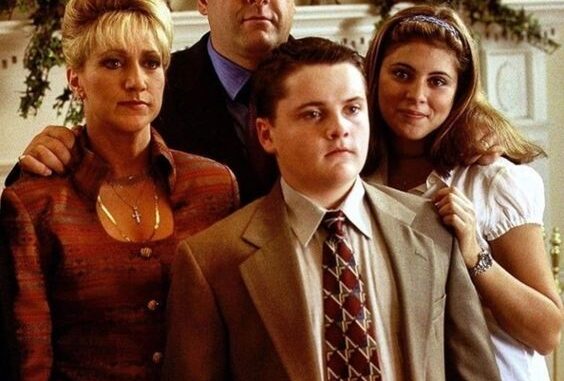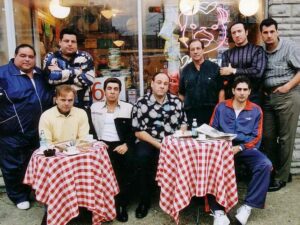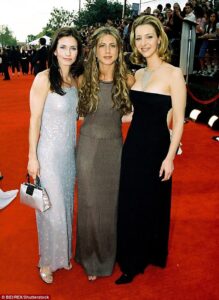
When you think about The Sopranos, it’s hard not to remember the groundbreaking storytelling, the unforgettable characters, and the way it reshaped the television landscape. However, what if I told you that David Chase, the show’s brilliant creator, had an even bolder vision in mind? What if the version of The Sopranos that aired wasn’t quite the show Chase originally envisioned?
Let’s dive into David Chase’s original plan for The Sopranos and explore why it could have been even more transformative than the series we know and love.
The Evolution of The Sopranos: A Show Like No Other
To understand David Chase’s original vision, we need to take a look at the cultural and television landscape in the late 1990s. Cable TV was still relatively young, and most TV shows followed predictable formulas. But Chase was determined to create something that broke away from the norms.

When The Sopranos premiered in 1999, it was revolutionary—mixing family drama with organized crime, and tackling deep psychological themes through the character of Tony Soprano. Yet, what we saw on screen was only part of the plan. Chase’s early ideas for the show were even more radical.
David Chase’s Bold Plan: The Sopranos as a Black Comedy
One of the most fascinating aspects of Chase’s original concept was his intention to make The Sopranos more of a black comedy than a traditional crime drama. While the show we got still had plenty of dark humor, it was primarily framed as a family and mob drama. But, Chase initially wanted to lean more into the absurdity of life as a mob boss—mixing tragedy with farce in a way that was even more overt.
Imagine the potential for the show to take an even more comedic turn, where mob hits were not just brutal but absurd, and characters like Paulie Walnuts, with his unique sense of humor, could have been more exaggerated in his oddball antics. It would have blurred the lines between dark comedy and drama even further, making it even more unpredictable and fresh.
The Sopranos: A Story Told Through Tony’s Mind
Another intriguing aspect of Chase’s original plan was a stronger focus on Tony Soprano’s psychological state. While Tony’s therapy sessions became a pivotal part of the show, Chase initially envisioned the show to delve even deeper into his mind—playing with surrealistic and dreamlike sequences more extensively.
This idea would have amplified the show’s already psychological nature. If the series had gone even further into Tony’s subconscious, we could have seen a deeper exploration of his inner conflicts and anxieties. In a way, the show might have looked more like a psychological thriller with elements of horror, rather than the standard mob drama we became accustomed to.
A Greater Focus on Female Characters
Another missed opportunity from Chase’s original plan was a deeper exploration of female characters. The show eventually gave us Carmela Soprano, Dr. Melfi, and a few other key women, but Chase originally intended for these characters to play even more pivotal roles.
Carmela, for example, was meant to have an even more complex character arc. While she was portrayed as Tony’s supportive wife, her own desires, struggles, and eventual moral compromises could have been further explored, making her a stronger counterpoint to Tony’s mob boss persona. Women in the world of The Sopranos could have been portrayed not only as wives and mothers but as powerful players in their own right, influencing the mob world around them.
More Time in the Mafia’s Day-to-Day Operations
One area where Chase’s original vision could have added even more depth was in the day-to-day operations of the mafia. While we saw the power struggles, betrayals, and backstabbing, there was less of a focus on the logistical side of Tony’s business.

Chase initially planned to explore more about the behind-the-scenes workings of the mafia—how businesses were run, how Tony maintained control over his crew, and the intricate relationships between various factions. This would have added a level of detail that could have made the mob world feel even more immersive and complex.
David Chase’s Plan for the Show’s Tone: Gritty Yet Hopeful
One of the hallmarks of The Sopranos was its ability to balance moments of pure darkness with flashes of hope. While the show ultimately nailed this balance, David Chase originally planned for the show to embrace this even more intensely. He wanted the show to be not just about mobsters and family but about finding redemption in a world that often feels hopeless.
Chase hoped to create a show that wasn’t afraid to show characters in their lowest moments but also allowed for moments of transcendence and redemption, however fleeting. This could have pushed the show into even deeper emotional territory, asking whether anyone in Tony’s world was capable of real change or whether they were doomed to repeat their mistakes forever.
What Might Have Happened to the Storyline?
While Chase’s initial plans were daring, the direction the show ultimately took allowed for a more gradual exploration of Tony’s character. Instead of diving into surrealistic dream sequences or leaning too heavily into comedy, the show became a drama that slowly built layers of meaning through subtlety.
Had Chase’s original plan been fully realized, The Sopranos could have taken an even more experimental turn. The series might have pushed boundaries in ways that would have challenged viewers’ expectations, making the show feel even more like a work of art rather than a traditional TV show.
The Impact of TV Landscape at the Time
It’s important to consider the era in which The Sopranos aired. The late 90s and early 2000s were not as accustomed to the nuanced, complex storytelling we see today in shows like Breaking Bad or Mad Men. HBO, at the time, was still figuring out how to make content that would appeal to a wider audience, and Chase’s more experimental ideas might have been harder to pull off given the context.
Nonetheless, the show’s success in this environment speaks to the brilliance of David Chase’s ability to balance his creative vision with the constraints of mainstream television.
Why Chase’s Original Vision Might Have Been Even Better
There’s no denying that The Sopranos as we know it is a masterpiece. However, considering what we know about David Chase’s original ideas, it’s easy to imagine a version of the show that was even more ambitious, surreal, and experimental. If the show had gone in the direction Chase originally intended, we might have seen a more fragmented narrative, pushing the boundaries of what audiences expected from TV.
The increased focus on Tony’s psyche, the deeper involvement of women in the story, and the darker, more absurd tones could have made The Sopranos even more influential in reshaping TV storytelling. It might have carved an even more unique path through a cultural landscape that was just beginning to embrace shows with complex characters and unpredictable storylines.
What If We Had Seen the Original Sopranos?
In a world where we could have seen Chase’s original vision for The Sopranos, we would have witnessed a TV series that broke even more molds than the show we know today. While what we got was groundbreaking in its own right, the idea of a show that fully explored the psychological depths of its characters, pushed the envelope on humor, and dealt with the mafia world in even more intricate ways could have been an even more daring and revolutionary piece of television.
Ultimately, The Sopranos changed television forever, no matter which direction David Chase chose to take. But it’s fun to imagine how even bolder ideas might have made this cultural touchstone even more extraordinary.
Conclusion: David Chase’s Original Plan—A Masterpiece That Could Have Been
The Sopranos has rightly earned its place as one of the greatest TV shows of all time, and while its legacy is undeniable, it’s fascinating to think about what could have been. David Chase’s original vision for the series had the potential to be even more groundbreaking, blending dark humor, surrealism, and deeper character exploration. It’s a testament to his creative genius that even the show we did get is still as influential as it is.
Though we’ll never know exactly how Chase’s original plans might have played out, they give us a glimpse into what could have been an even more experimental and layered exploration of Tony Soprano and his world. Regardless of which version we consider, The Sopranos remains a brilliant testament to storytelling and a perfect example of the power of television.